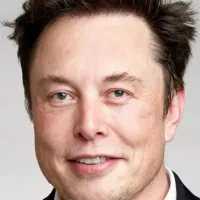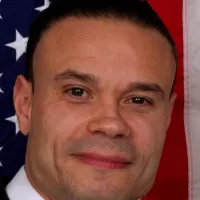Neuralink, founded in 2016 by Elon Musk and a team of scientists and engineers, is an American neurotechnology company developing implantable brain-computer interfaces (BCIs). Headquartered in Fremont, California, Neuralink aims to create devices that can interface directly with the human brain. Neuralink also plans to expand its facilities by building a new site near Tesla's Gigafactory Texas.
January 2017: Approached for "NeuraLink" Rights
In January 2017, proxies for Elon Musk contacted Pedram Mohseni and Randolph Nudo, who held the rights to the name "NeuraLink" and the prototype upon which Musk's company based its work.
March 2017: Public Announcement
In March 2017, Neuralink was first publicly reported after being launched in 2016. This marked the initial unveiling of the company and its mission to the public.
April 2017: Aims Announced
In April 2017, Neuralink announced its short-term aim to create devices to treat serious brain diseases, with the long-term goal of human enhancement, also known as transhumanism. Musk mentioned inspiration from the "neural lace" concept in Iain M. Banks's "The Culture" series.
September 2018: Musk Majority Owner
As of September 2018, Elon Musk was the majority owner of Neuralink but did not hold an executive position within the company.
2018: Animal Testing Facility
In 2018, Gizmodo reported that Neuralink "remained highly secretive about its work." Public records showed that it had sought to open an animal testing facility in San Francisco, but it subsequently began doing research at the University of California, Davis.
2019: First Prototype Revealed
In 2019, during a live presentation at the California Academy of Sciences, Neuralink revealed the technology of the first prototype it had been working on, which is a system that involves ultra-thin probes inserted into the brain, a neurosurgical robot to perform the operations, and a high-density electronic system capable of processing information from neurons.
July 2020: FDA Breakthrough Device Designation
In July 2020, Elon Musk stated that Neuralink received a FDA breakthrough device designation, allowing limited human testing under FDA guidelines for medical devices.
August 2020: Founding Scientists Departure
According to an article by Stat News, by August 2020, only three of the original eight founding scientists remained at Neuralink. The article cited "years of internal conflict" due to rushed timelines conflicting with the slow pace of scientific research.
August 2020: Live Pig Demo
In August 2020, Neuralink conducted a live demonstration showcasing the brain activity of a pig named Gertrude in real time, using a coin-sized implant. This demo showed the technology's ability to read and interpret brain signals.
August 2020: Neuralink device described as "a Fitbit in your skull"
In August 2020, at a live demonstration, Elon Musk described the Neuralink device as "a Fitbit in your skull", which was met with criticism from neuroscientists and publications.
2020: Partnership End
From 2017 to 2020, Neuralink's experiments on monkeys were conducted in partnership with University of California, Davis. At the end of the partnership in 2020, UC Davis transferred seven monkeys to Neuralink.
2020: Criticism Regarding Novelty of Neuralink's BMI
In 2020, Thiago Arzua and Miguel Nicolelis criticized Neuralink's presentation and novelty claims, stating that the brain–machine interface (BMI) ideas were not novel and had been previously demonstrated.
April 2021: Monkey Plays Pong
In April 2021, Neuralink demonstrated a monkey playing the game "Pong" using a Neuralink implant. While similar technology existed since 2002, the wireless nature and increased number of implanted electrodes represented significant engineering advancements.
May 2021: Max Hodak Departure
In May 2021, Neuralink co-founder and president Max Hodak announced that he was no longer working with the company.
February 2022: Denial of Animal Abuse
In February 2022, Neuralink acknowledged that macaque monkeys were euthanized after experimentation but denied any animal abuse had occurred.
December 2022: Federal Investigation
In December 2022, it was reported that Neuralink was under federal investigation by the United States Department of Agriculture (USDA) for animal welfare violations.
2022: Animal Mistreatment Allegations
In 2022, The Physicians Committee for Responsible Medicine (PCRM) alleged that Neuralink and UC Davis mistreated several monkeys, subjecting them to psychological distress, extreme suffering, and chronic infections due to surgeries.
2022: More Pig Tests
In 2022, after being rejected for human clinical trials by the FDA, Neuralink performed more tests on pigs to address safety concerns, and some pigs developed granulomas (inflammatory tissues) in their brains. Neuralink could not determine the cause of the granulomas, but claimed that the implant and its associated threads were not the cause.
May 2023: FDA Approval for Human Clinical Trials
In May 2023, Neuralink received FDA approval to begin human clinical trials, addressing the major safety concerns that led to the rejection of the 2022 application.
May 2023: Approval for Human Trials
In May 2023, Neuralink received approval to begin human trials in the United States, clearing the way for in-human experimentation.
July 2023: USDA Investigation Findings
In July 2023, a United States Department of Agriculture investigation found no evidence of animal welfare breaches in Neuralink's trials, other than a self-reported incident in 2019.
September 2023: First Human Trials Begin
In September 2023, Neuralink initiated its first human trials, recruiting individuals with quadriplegia due to cervical spinal cord injury or ALS. The procedure was performed at Barrow Neurological Institute in Phoenix, Arizona.
September 2023: Primate Death Details Revealed
In September 2023, Wired published an exposé providing details on primate deaths based on public records and confidential interviews, detailing complications with electrode installation, including paralysis, bloody diarrhea, and brain swelling.
October 2023: Effort to Hide Animal Suffering
In October 2023, Wired reported that Neuralink worked to keep details of animal suffering and death hidden from the public.
November 2023: SEC Investigation Request
In November 2023, U.S. lawmakers asked the Securities and Exchange Commission to investigate whether Neuralink deceived investors by omitting details about possible animal deaths.
January 29, 2024: First Human Implant
On January 29, 2024, Elon Musk announced that Neuralink had successfully implanted a Neuralink device in a human patient, Noland Arbaugh, who was recovering. This marked a significant milestone in the company's development of brain-computer interfaces.
March 20, 2024: First Neuralink Implant Recipient Introduced
On March 20, 2024, Neuralink presented Noland Arbaugh, the first clinical trial participant. He demonstrated the ability to control a cursor, play music, and play chess using the Neuralink implant, expressing improved quality of life.
March 21, 2024: Blindsight Trials
On March 21, 2024, Elon Musk stated that Neuralink's second product, Blindsight, was working in trials with monkeys and operated at a low resolution that was expected to improve. Musk said that no monkey had died or been seriously injured due to a Neuralink device, contradicting earlier reports.
May 29, 2024: Public Input Request
On May 29, 2024, Elon Musk requested public input on a challenge facing Neuralink, suggesting that a compression rate of over 200x was needed due to the size of the data, and software consultant Roy van Rijn called the prospect of 200x lossless compression "just outlandish."
August 2024: Second Participant Receives Neuralink Implant
In August 2024, Neuralink successfully implanted a chip in its second participant, pseudonym "Alex". Alex was reportedly able to create 3D designs by using the CAD software Fusion 360 and a custom mount for his Neuralink charger because of the implant. Additional accounts show that he has been able to play first-person shooter games at a higher level than before.
September 2024: Blindsight Announcement
In September 2024, Neuralink announced Blindsight, its latest development effort aimed at enabling blind people with undamaged visual cortices to regain some level of vision. The U.S. federal government granted Blindsight "breakthrough" status, which will accelerate development.
November 2024: Health Canada Approves Clinical Trial
In November 2024, Neuralink received approval from Health Canada for its first clinical trial in that country, named CAN-PRIME, and to be led by Andres M. Lozano.
December 2024: PCRM News Release
In a December 2024 news release, PCRM wrote that documents from the University of California, Davis, revealed that implantation of the company's device caused debilitating health effects in monkeys, resulting in euthanasia. Animals experienced chronic infections, paralysis, swelling in the brain, loss of coordination and balance, and depression.
December 2024: SEC Investigation Reopened
The New York Times reported that in December 2024, Elon Musk posted a letter on X in which his lawyer informed him that the Securities and Exchange Commission (SEC) had reopened a separate investigation related to the alleged abuses.
January 2025: Inspectors General Fired
In January 2025, during the first week of his second term in office, President Donald Trump fired 17 inspectors general, including Phyllis Fong, who was responsible for the Agriculture Department's investigation.
April 2025: False Claim
In April 2025, Neuralink falsely called itself a "small disadvantaged business" in a filing with the U.S. Small Business Administration.
September 2025: Update on Trial Participants
As of September 2025, Elon Musk reported there were 12 trial participants, with over 2,000 cumulative days and 15,000 hours of usage.
September 2025: First Neuralink brain implant surgeries outside the United States
In September 2025, the University Health Network in Toronto performed Canada's first Neuralink brain implant surgeries on two patients with cervical spinal cord injuries, marking the first such procedures outside the United States.
Mentioned in this timeline

Elon Musk is a businessman and entrepreneur who leads Tesla...

Donald John Trump is an American politician media personality and...
California is a U S state on the Pacific Coast...

San Francisco is a major commercial financial and cultural hub...

News encompasses information about current events disseminated through various media...

FIFA the F d ration Internationale de Football Association is...
Trending

2 hours ago Dan Bongino Unleashes R-Rated Rant Against Trump Voter's Complaint: Heated Exchange Erupts.

2 hours ago Luka Don?i? shines as Lakers defeat Warriors; LeBron hits 1,000 3-pointers.

2 hours ago UAE Supports Stranded Tourists with Hotels and Meals After Iran Flight Disruptions

3 hours ago Luke Kennard Impresses with Lakers, Drawing Praise and Justifying Trade.

3 hours ago Murray & Williamson's Sunday Game Status Uncertain; Murphy to Play, Ruled Out Initially
3 hours ago Israel's missile defense faces depletion amidst war prospects and Iran's missile acceleration.
Popular

Jesse Jackson is an American civil rights activist politician and...

Hillary Diane Rodham Clinton is a prominent American politician lawyer...

XXXTentacion born Jahseh Dwayne Ricardo Onfroy was a controversial yet...

Jim Carrey is a Canadian-American actor and comedian celebrated for...

Kashyap Pramod Patel is an American lawyer who became the...

Michael Joseph Jackson the King of Pop was a highly...